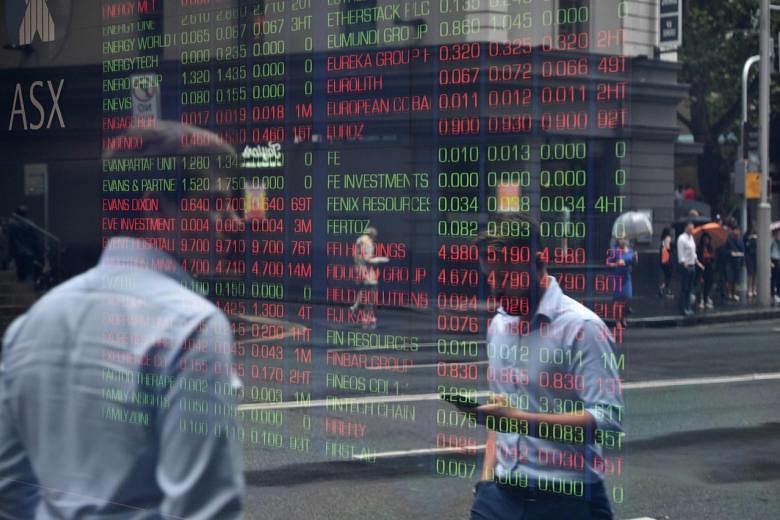SYDNEY (BLOOMBERG) - Australia's economy will record its first recession since 1991 as the hit from the coronavirus-induced slowdown is amplified by slumping confidence and domestic disruptions from the outbreak intensifying Down Under, according to Bloomberg Economics's James McIntyre.
Gross domestic product will fall 0.4 percentage point in the first three months of the year and 0.3 percentage point in the second quarter, ending a 28½-year stretch of economic growth, he said in a report on Monday (March 9).
"Isolations and domestic disruptions to contain the spread of the virus will have a mounting economic impact, which is likely to result in a further GDP contraction in 2Q and potentially beyond," McIntyre said. "Stimulus, both fiscal and monetary, will help to reduce the damage, but is unlikely to be enough to offset the impacts."
GDP will expand by just 0.4 per cent in 2020, he forecasts, some 1.5 percentage points below his pre-coronavirus estimate.
PANIC SELLING
An all-out price war between the world's biggest oil producers is adding to the prospect of a recession as the coronavirus wreaks havoc across the world. Panic reigned in currency markets Monday as orders from traders and algorithmic machines snowballed.
That saw the Australian dollar plunge almost 5 per cent in less than 20 minutes, the biggest one-day decline since 2008. Australia's benchmark S&P/ASX 200 stock index had slumped 6.2 per cent at 3 p.m. in Sydney.
The Reserve Bank cut interest rates last week and money markets are pricing in a further reduction in April, which would bring it to the estimated lower bound of 0.25 per cent and open the door to unconventional policy. The government is finalizing a fiscal "boost" that could amount to A$10 billion (S$9 billion) to support firms struggling with cash flow and help them keep on employees.
McIntyre predicts large budget deficits ahead as the automatic stabilizers - increased welfare payments and reduced tax collection - begin to take hold. That's on top of the fiscal stimulus needed to boost demand and confidence.
Alan Oster, chief economist at National Australia Bank, expects the RBA will deploy unconventional policy as early as May, after reducing the cash rate to its estimated lower bound of 0.25 per cent in April.
He sees the preferred option as yield-curve control - setting a target level for government bond yields at a specific duration - with the aim of flattening the yield curve and lowering the cost of debt funding.
The Treasury and RBA estimate the impact on tourism and education from China's shutdown and other virus fallout will cut 0.5 percentage point from GDP in the first quarter. That doesn't include supply chain disruptions and is in addition to a 0.2 point cut from wildfires over summer.
McIntyre said the comparison with the 2003 Sars epidemic is problematic because of the massive increase of China's importance to both the Australian and global economies. He notes that in the Australian Dollar Trade-Weighted Index of the exchange rate, the weighting of the renminbi rose to 30 per cent, higher than any other currency in the 36-year history of the gauge.
The channels through which the reduction in domestic activity transmits during a pandemic were laid out in a 2006 Treasury paper whose author is Steven Kennedy, the current secretary to the Australian Treasury. That analysis saw the economy contracting 5 per cent in the first year.
Transmission of the virus in Australia is now occurring, meaning disruptions and shutdowns of aged-care facilities, child-care centres and schools. Health authorities anticipate several months of disruptions from the virus.
The economy will bounce back, McIntyre said, noting that fourth-quarter GDP released last week showed several segments turning around, including housing and mining investment. China is also set to stimulate its economy, which traditionally benefits Australia.
"How Australia's housing market weathers the virus outbreak will be a key area of interest given the earlier downturn in construction activity," he said. "Australia's resources sector also stands well placed to benefit from a resumption of activity in China's construction sector and stimulus measures."











